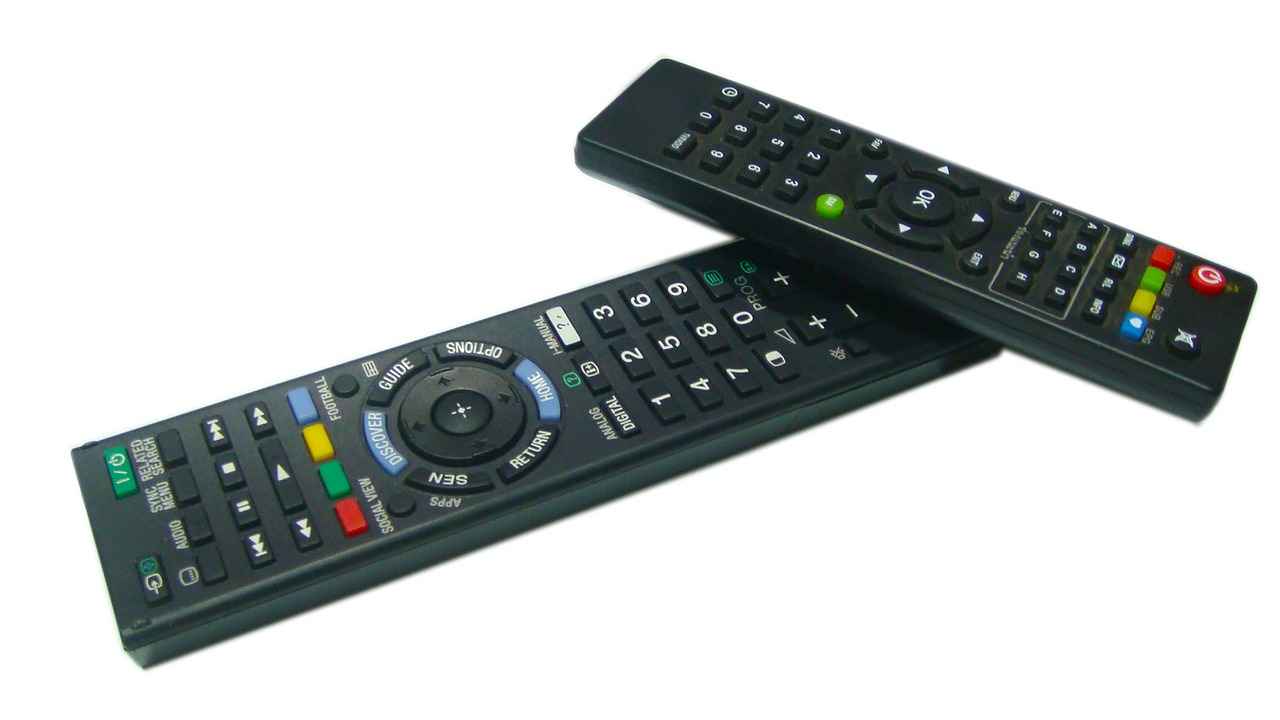This article explores effective strategies and resources for finding remote part-time jobs in the healthcare sector, catering to various roles and qualifications.
Understanding the Healthcare Job Market
As the demand for healthcare professionals continues to rise, understanding the current trends in the healthcare job market is essential. Remote opportunities are becoming increasingly prevalent, allowing professionals to work from home while meeting the needs of patients. Various roles are available, from telehealth providers to administrative support, making it crucial to identify which positions align with your qualifications.
Essential Skills for Remote Healthcare Positions
- Communication Skills: Effective communication is paramount in remote healthcare roles. Clear verbal and written communication ensures that information is conveyed accurately among patients and team members.
- Technical Skills: Proficiency in technological tools is essential. Familiarity with telehealth platforms and electronic health records (EHR) systems is often required.
- Active Listening: This skill helps in building rapport with patients, ensuring their needs are understood and met.
Where to Search for Remote Healthcare Jobs
To find remote part-time jobs in healthcare, consider the following resources:
- Job Boards: Websites like Indeed, Glassdoor, and specialized healthcare job boards offer numerous remote listings.
- Networking Opportunities: Utilize platforms like LinkedIn to connect with professionals in the healthcare field and uncover job leads.
Preparing Your Application
When applying for remote roles, tailor your resume and cover letter to highlight relevant skills and experiences. Focus on showcasing your adaptability and proficiency in remote work settings.
Interviewing for Remote Healthcare Jobs
Prepare for virtual interviews by familiarizing yourself with common questions and practicing effective communication techniques. Ensure your technology is set up correctly to avoid disruptions.
Staying Productive in a Remote Role
Maintaining productivity while working remotely is crucial. Implement time management strategies and create a dedicated workspace to enhance your efficiency.
Conclusion: Your Path to Remote Healthcare Opportunities
By understanding the job market, honing essential skills, and effectively preparing your applications, you can successfully navigate the search for remote part-time jobs in the healthcare sector. Take actionable steps today to embark on your remote career journey.

Understanding the Healthcare Job Market
The healthcare job market is evolving rapidly, particularly in the wake of recent global events that have reshaped how care is delivered. One of the most significant shifts has been the rise of remote job opportunities. This trend is not just a temporary adjustment; it reflects a fundamental change in how healthcare services are provided and managed.
Currently, there is a high demand for various roles that can be performed remotely. These include positions such as telehealth nurses, medical coders, and healthcare IT specialists. The flexibility of remote work allows professionals to maintain a better work-life balance, while also enabling healthcare organizations to tap into a broader talent pool.
Moreover, the types of roles available in the remote healthcare sector are diverse. Here are some of the key job categories:
- Clinical Roles: These include telehealth providers, mental health counselors, and case managers who can deliver care remotely.
- Administrative Positions: Roles such as healthcare administrators, billing specialists, and patient coordinators that support the operational aspects of healthcare.
- Technical Positions: IT professionals who manage healthcare software, data analysis, and cybersecurity to protect patient information.
In addition to these roles, there is an increasing need for cross-functional skills. Professionals who can adapt to various tasks and collaborate effectively with teams from different backgrounds are highly valued. This adaptability is essential in a remote setting where communication and teamwork can be challenging.
As the healthcare landscape continues to change, staying informed about these trends is crucial for job seekers. By understanding the current demands and opportunities, individuals can better position themselves for success in the evolving job market.

Essential Skills for Remote Healthcare Positions
In the evolving landscape of healthcare, remote positions have become increasingly prevalent. To thrive in these roles, candidates must possess a unique blend of skills and qualifications. This article delves into the key competencies essential for success in remote healthcare jobs, focusing on communication, technical proficiency, and specialized knowledge.
- Communication Skills
- Verbal and Written Communication: Effective communication is essential in remote settings. Healthcare professionals must convey critical information clearly to both patients and colleagues. This includes using precise language in documentation and being articulate during virtual consultations.
- Active Listening: Understanding patient needs is vital. Active listening fosters trust and ensures that healthcare providers can address concerns accurately, leading to better patient outcomes.
- Technical Skills
- Proficiency with Healthcare Technology: Familiarity with telehealth platforms, electronic health records (EHR), and health information systems is crucial. Remote healthcare workers should be adept at navigating these technologies to provide seamless care.
- Data Management: The ability to manage and analyze patient data is increasingly important. Healthcare professionals must ensure that data is securely handled and accurately reported.
- Specialized Knowledge
- Clinical Expertise: Depending on the role, specific clinical knowledge is necessary. Whether it’s nursing, therapy, or medical coding, professionals should have a solid understanding of their field to provide high-quality care.
- Regulatory Compliance: Awareness of healthcare regulations and compliance standards is vital. Remote workers must ensure that their practices adhere to legal and ethical guidelines.
In conclusion, the combination of communication skills, technical proficiency, and specialized knowledge forms the backbone of successful remote healthcare positions. As the industry continues to grow, equipping oneself with these essential skills will be crucial for aspiring healthcare professionals.
Communication Skills
In the realm of remote healthcare, effective communication stands as a cornerstone for success. The ability to convey information clearly and efficiently is not just a skill but a vital necessity. This section delves into the significance of maintaining open lines of communication with both patients and team members, ensuring optimal care and collaboration.
- Importance of Clear Communication: In remote settings, the absence of physical presence can lead to misunderstandings. Therefore, healthcare professionals must articulate their thoughts and instructions with precision to avoid any miscommunication.
- Building Trust with Patients: Establishing a strong rapport with patients is crucial. Clear communication fosters trust, enabling patients to feel comfortable sharing their concerns and symptoms, which ultimately leads to better healthcare outcomes.
- Team Collaboration: Effective communication among team members is essential for coordinated patient care. Regular updates and feedback loops help ensure that everyone is on the same page, thereby improving the overall efficiency of the healthcare delivery process.
Verbal and Written Communication
Remote healthcare professionals must excel in both verbal and written communication. Whether it’s through video calls, phone conversations, or written reports, the ability to express oneself clearly is paramount. Misinterpretations can lead to critical errors in patient care.
Active Listening
Active listening plays a pivotal role in remote healthcare settings. By genuinely focusing on what patients and colleagues are saying, healthcare providers can better understand their needs and respond appropriately. This skill not only enhances patient satisfaction but also contributes to effective teamwork.
In conclusion, honing communication skills is essential for anyone in remote healthcare roles. By prioritizing clear and effective communication, professionals can ensure better patient outcomes and foster a collaborative work environment.
Verbal and Written Communication
are fundamental skills for remote healthcare professionals, enabling them to convey information accurately and effectively. In a field where precision is paramount, the ability to communicate clearly can significantly impact patient outcomes and team collaboration.
In remote healthcare settings, professionals rely heavily on verbal communication to interact with patients and colleagues. This includes phone consultations, video calls, and voice messages. Each method presents unique challenges, such as the absence of physical cues, which can lead to misunderstandings. Therefore, it is essential for healthcare providers to articulate their thoughts clearly, using simple language and confirming that patients understand the information shared.
Equally important is written communication. Remote healthcare workers often document patient interactions, treatment plans, and follow-up instructions through emails, electronic health records (EHRs), and messaging platforms. The clarity and accuracy of these written communications are vital, as they serve as official records that can influence future care. Miscommunication in written form can lead to errors in treatment, which could have serious consequences for patient health.
To enhance both verbal and written communication skills, remote healthcare professionals should:
- Practice Active Listening: This involves fully concentrating on what the patient is saying, acknowledging their concerns, and responding thoughtfully.
- Seek Feedback: Regularly ask for feedback from patients and colleagues to improve communication techniques.
- Utilize Clear Language: Avoid jargon and use straightforward terms that patients can easily understand.
- Regular Training: Participate in workshops or training sessions focused on communication skills specific to healthcare settings.
In conclusion, mastering both verbal and written communication skills is essential for remote healthcare professionals. By focusing on clarity, active listening, and continuous improvement, they can ensure that they convey information accurately, ultimately leading to better patient care and collaboration within healthcare teams.
Active Listening
is a crucial skill in the healthcare sector, particularly in remote settings where face-to-face interactions are limited. It plays a significant role in establishing rapport with patients and ensuring their needs are met effectively. In a virtual environment, the nuances of communication can often be lost, making it essential for healthcare professionals to hone their listening skills.
Active listening involves more than just hearing the words spoken by patients; it requires engagement and understanding. This means paying attention not only to verbal cues but also to non-verbal signals, such as tone of voice and body language, which can be conveyed through video calls. By demonstrating that they are fully present and invested in the conversation, healthcare providers can foster a sense of trust and comfort, encouraging patients to express their concerns openly.
Moreover, active listening allows healthcare professionals to accurately assess patients’ needs. In remote consultations, where visual assessments may be limited, clarifying questions and reflective statements become vital tools. For instance, paraphrasing what a patient has said can confirm understanding and show that their input is valued. This not only helps in gathering essential information but also reassures patients that their opinions matter in their care journey.
To implement effective active listening techniques, healthcare professionals can adopt the following practices:
- Maintain eye contact: In video calls, looking directly at the camera can create a sense of connection.
- Use verbal affirmations: Simple acknowledgments like “I see” or “I understand” can encourage patients to continue sharing.
- Summarize regularly: Periodically summarizing the conversation can help clarify any misunderstandings.
In conclusion, mastering active listening is essential for healthcare professionals working remotely. By prioritizing this skill, they can build stronger relationships with patients, ensuring that their needs are met effectively and compassionately.
Technical Skills
Technical proficiency is a cornerstone of success in remote healthcare jobs. As the industry evolves, professionals must adapt to an array of technological tools and platforms that facilitate patient care, data management, and communication.
In this digital age, healthcare providers are increasingly relying on telehealth platforms to conduct virtual consultations. These platforms, such as Zoom for Healthcare and Doxy.me, offer secure environments for patient interactions, ensuring compliance with regulations like HIPAA. Familiarity with these tools not only enhances patient engagement but also streamlines workflows.
Moreover, electronic health record (EHR) systems such as Epic and Cerner are vital for managing patient data. Remote healthcare workers must be adept at navigating these systems to access patient histories, document visits, and coordinate care with other providers. Training in these platforms can significantly improve efficiency and accuracy in patient management.
Additionally, proficiency in communication tools like Slack or Microsoft Teams is essential for collaboration among healthcare teams. These platforms support real-time communication and file sharing, fostering teamwork and enhancing patient care. Understanding how to utilize these tools effectively can lead to improved outcomes and a more cohesive work environment.
Finally, with the rise of healthcare analytics, professionals should have a basic understanding of data analysis tools. Knowledge of platforms such as Tableau or Power BI can help in interpreting healthcare data, leading to better decision-making and improved patient care strategies.
In conclusion, possessing strong technical skills is not just beneficial but essential for anyone pursuing a career in remote healthcare. Embracing these technologies will not only enhance individual performance but also contribute to the overall effectiveness of healthcare delivery in a remote setting.

Where to Search for Remote Healthcare Jobs
In today’s evolving job market, finding remote part-time positions in the healthcare sector can be a rewarding endeavor. With a variety of platforms and websites dedicated to this niche, job seekers can navigate their options effectively. Below, we explore some of the most useful resources for locating remote healthcare opportunities.
- Specialized Job Boards: Websites like HealthcareJobSite and FlexJobs specifically cater to healthcare professionals looking for remote work. These platforms often feature curated job listings that ensure quality and relevance.
- General Job Boards: Major job search engines such as Indeed and Monster also have sections dedicated to remote healthcare jobs. Using filters can help narrow down options to part-time positions.
- Company Career Pages: Many healthcare organizations, including hospitals and telehealth services, post job openings directly on their websites. Regularly checking these pages can yield exclusive opportunities.
- Networking Platforms: Utilizing platforms like LinkedIn can enhance your job search. Joining relevant groups and connecting with professionals in the healthcare field can lead to job referrals and insider information.
- Freelance Websites: Sites like Upwork and Fiverr offer freelance opportunities in healthcare, allowing professionals to take on short-term projects or part-time roles.
By leveraging these resources, job seekers can effectively find remote part-time jobs in the healthcare field that align with their skills and career aspirations. Remember to tailor your applications to highlight your unique qualifications and experiences.
Job Boards and Websites
Finding remote part-time jobs in the healthcare sector can be a daunting task, but leveraging the right job boards and websites can streamline your search. Below, we explore some of the most popular platforms that specialize in healthcare job listings, including remote and part-time opportunities.
- Health eCareers: This site is dedicated to healthcare professionals, offering a variety of job listings ranging from administrative roles to clinical positions. Its user-friendly interface allows you to filter jobs by location, type, and specialty.
- FlexJobs: Known for its focus on flexible job opportunities, FlexJobs features a dedicated section for healthcare jobs. It ensures that all listings are vetted for legitimacy, making it a safe choice for job seekers.
- Indeed: As one of the largest job search engines, Indeed aggregates listings from various sources. You can easily search for remote part-time healthcare jobs by using specific keywords and filters.
- Remote.co: This website specializes in remote work across various industries, including healthcare. It showcases job postings from companies that prioritize remote work, making it easier to find suitable opportunities.
- SimplyHired: This platform offers a comprehensive search tool for job seekers, allowing you to find remote healthcare jobs by entering relevant keywords. It also provides salary information and company reviews.
In addition to these platforms, consider joining specialized healthcare forums and groups on social media platforms like LinkedIn and Facebook. Networking can lead to unadvertised job opportunities and valuable connections in the industry.
By utilizing these resources, you can enhance your job search and find the right remote part-time healthcare position that fits your skills and lifestyle.
Networking Opportunities
In today’s competitive job market, networking has become an essential tool for job seekers, especially in the realm of remote healthcare positions. Building a robust professional network can open doors to numerous opportunities and provide valuable insights into the industry.
One of the most effective ways to leverage your network is through professional associations. Joining organizations related to healthcare can connect you with industry veterans who can offer guidance, mentorship, and even job leads. Many of these associations host virtual events and webinars, providing an excellent platform for networking.
In addition to professional associations, social media platforms like LinkedIn can be a powerful tool for expanding your network. Here are some strategies to effectively use social media for your job search:
- Optimize Your Profile: Ensure your LinkedIn profile is up-to-date with relevant skills, experiences, and a professional photo.
- Engage with Content: Share articles, comment on posts, and participate in discussions to increase your visibility.
- Connect with Industry Professionals: Reach out to individuals in your field, including recruiters and hiring managers, to expand your professional circle.
Another avenue for networking is through online forums and communities dedicated to healthcare. Participating in discussions and sharing your expertise can help you build relationships with like-minded individuals. Websites such as Reddit’s healthcare community and specialized Facebook groups can be great places to start.
Finally, don’t underestimate the power of informational interviews. Reach out to professionals in roles you aspire to and request a brief conversation to learn about their experiences. Not only can this provide you with valuable insights, but it can also lead to potential job referrals.
In summary, leveraging networking opportunities through professional associations, social media, online communities, and informational interviews can significantly enhance your job search in the remote healthcare sector. By actively engaging with your network, you increase your chances of discovering job leads and gaining insights that can propel your career forward.

Preparing Your Application
for remote healthcare positions requires a strategic approach to ensure your resume and cover letter stand out. Tailoring these documents is essential to highlight your relevant skills and experiences that align with the specific demands of remote roles in the healthcare sector.
When crafting your resume, focus on the following key areas:
- Relevant Experience: Include any previous remote work experience, emphasizing your ability to work independently and manage time effectively.
- Skills Alignment: Highlight skills that are particularly valuable in remote healthcare, such as telehealth proficiency, patient management systems, and data entry.
- Certifications: List any relevant certifications that may enhance your qualifications, such as telemedicine training or patient care credentials.
Next, your cover letter should complement your resume by providing a narrative that connects your experiences to the job description. Here are some strategies to consider:
- Personalization: Address the letter to the hiring manager by name, if possible, and mention the specific position you are applying for.
- Storytelling: Share a brief story that illustrates your passion for healthcare and how your skills have positively impacted patient care in previous roles.
- Remote Work Readiness: Emphasize your comfort with technology and virtual communication tools, showcasing how these skills will help you thrive in a remote setting.
Lastly, ensure that both your resume and cover letter are free of errors and formatted professionally. Use clear, concise language and avoid jargon unless it is relevant to the role. By taking these steps, you will present yourself as a strong candidate for remote healthcare positions, ready to meet the needs of patients and healthcare teams alike.
Resume Tips
Crafting a standout resume is essential for securing remote healthcare jobs, as it serves as your first impression to potential employers. To effectively showcase your qualifications, consider the following tips:
- Tailor Your Resume: Customize your resume for each application. Highlight relevant experiences and skills that align with the specific requirements of the job description.
- Use Clear Formatting: Ensure your resume is easy to read. Use bullet points, headings, and a clean layout to guide the reader through your qualifications.
- Highlight Remote Work Experience: If you have previous remote work experience, make it prominent. This shows your ability to adapt and thrive in a virtual environment.
- Showcase Relevant Skills: Emphasize skills that are crucial for remote healthcare roles, such as communication, problem-solving, and technical proficiency.
- Include Certifications: List any relevant certifications or training that bolster your qualifications for the role, such as CPR or specialized healthcare training.
- Quantify Achievements: Whenever possible, use numbers to demonstrate your impact in previous roles. For example, “Managed a caseload of 30 patients, improving patient satisfaction scores by 20%.”
- Professional Summary: Begin with a brief professional summary that encapsulates your experience and what you bring to the table. This should be tailored to the remote healthcare position you are applying for.
Remember, your resume is not just a list of jobs; it is a marketing tool that should effectively convey your value to potential employers. By following these tips, you can create a compelling resume that stands out in the competitive field of remote healthcare jobs.
Cover Letter Strategies
Writing a compelling cover letter is essential for securing a remote healthcare position. A well-crafted cover letter not only highlights your qualifications but also addresses the unique aspects of remote roles in the healthcare sector. Here are some strategies to help you create an impactful cover letter:
- Personalize Your Letter: Tailor your cover letter to the specific job you are applying for. Mention the organization by name and refer to the job title. This shows your genuine interest in the position.
- Highlight Relevant Experience: Focus on your past experiences that relate directly to the job description. Use specific examples to demonstrate how your background aligns with the responsibilities of the role.
- Emphasize Remote Work Skills: Since remote healthcare roles require specific skills, make sure to highlight your proficiency in communication, time management, and technical tools relevant to telehealth.
- Showcase Your Understanding of Remote Dynamics: Address the unique challenges of remote work, such as maintaining patient engagement and collaboration with team members, and explain how you effectively manage these challenges.
- Convey Your Passion for Healthcare: Employers want to see your enthusiasm for the field. Share your motivation for working in healthcare and how you can contribute to their mission.
In addition, consider the following tips:
- Keep It Concise: Aim for a one-page cover letter. Be direct and to the point, ensuring that each sentence adds value.
- Proofread Carefully: Spelling and grammatical errors can undermine your professionalism. Always proofread your cover letter before submission.
- Include a Strong Closing: End with a call to action, expressing your eagerness to discuss your application further in an interview.
By employing these strategies, you can create a cover letter that stands out in the competitive landscape of remote healthcare jobs. Remember, your cover letter is your chance to make a memorable first impression on potential employers.

Interviewing for Remote Healthcare Jobs
is a crucial step in securing your desired position in this growing field. With the rise of telehealth and remote patient care, the demand for qualified professionals has surged. To stand out in this competitive landscape, it’s essential to prepare effectively for your interviews. Below are specific strategies and tips designed to help you impress potential employers in the healthcare industry.
- Research the Organization: Before your interview, take time to understand the company’s mission, values, and recent developments. This knowledge will allow you to tailor your responses and demonstrate genuine interest.
- Practice Common Questions: Familiarize yourself with common interview questions for remote healthcare roles. Questions may include:
- How do you handle stress in a remote environment?
- Can you provide an example of a challenging patient interaction and how you resolved it?
- What tools do you use to manage your workload remotely?
- Showcase Your Technical Skills: Highlight your proficiency with telehealth platforms and other relevant technologies. Employers will be looking for candidates who can navigate these tools effectively.
- Demonstrate Communication Skills: In remote positions, clear communication is essential. Use examples that illustrate your ability to convey information accurately and compassionately.
- Prepare Your Environment: Ensure that your interview space is quiet, well-lit, and free from distractions. A professional setting reflects your commitment to the role.
Additionally, it’s important to dress appropriately for a remote interview. Even though you are not meeting in person, presenting yourself professionally can make a lasting impression.
In conclusion, preparing for remote healthcare job interviews involves a combination of research, practice, and creating an optimal interview environment. By following these strategies, you can enhance your chances of impressing potential employers and securing a position in this rewarding field.
Common Interview Questions
Common Interview Questions for Remote Healthcare Positions
When preparing for an interview in the remote healthcare sector, it is essential to familiarize yourself with the types of questions you may encounter. Understanding these common interview questions can significantly enhance your ability to respond effectively, showcasing your skills and suitability for the role.
- Tell us about your experience in healthcare: This question allows you to highlight your relevant work history and specific roles you have held. Focus on your achievements and how they relate to the position you are applying for.
- How do you handle difficult patients? Employers want to know your strategies for managing challenging interactions. Share examples of past experiences and your approach to resolving conflicts while maintaining professionalism.
- What tools and technologies are you familiar with? In remote healthcare, proficiency with technology is crucial. Discuss the software and tools you have used, emphasizing your adaptability to new technologies.
- How do you prioritize tasks in a remote setting? Time management is vital in remote roles. Explain your methods for organizing tasks and ensuring that you meet deadlines while maintaining quality care.
- Can you describe a time when you worked as part of a remote team? Share your experiences collaborating with colleagues remotely. Highlight your communication skills and how you contributed to the team’s success.
To answer these questions effectively, consider using the STAR method (Situation, Task, Action, Result) to structure your responses. This approach provides a clear and concise way to convey your experiences and achievements.
Lastly, remember to research the organization and its values. Tailoring your answers to align with the company’s mission can demonstrate your genuine interest in the position and enhance your chances of success.
Virtual Interview Techniques
In today’s digital age, virtual interviews have become a standard practice for many employers, especially in the healthcare sector. To excel in these interviews, candidates must adopt specific strategies that enhance their chances of success. Below are some best practices to help you navigate virtual interviews effectively.
- Technology Setup: Ensure that your technology is reliable. This includes having a working computer, a stable internet connection, and a functioning webcam and microphone. Test your equipment beforehand to avoid any technical glitches during the interview.
- Environment Matters: Choose a quiet, well-lit space for your interview. A tidy background can help you appear professional and focused. Make sure there are no distractions, such as pets or family members, that could interrupt the conversation.
- Dress Professionally: Even though the interview is virtual, dressing appropriately can boost your confidence and make a positive impression. Wear professional attire as you would for an in-person interview.
- Body Language: Maintain good posture and eye contact with the camera. This conveys confidence and engagement. Avoid fidgeting or looking away from the screen, as this can be distracting.
- Preparation is Key: Research the organization and the role you are applying for. Prepare for common interview questions and formulate insightful questions to ask the interviewer. This shows your interest and enthusiasm for the position.
- Practice Active Listening: During the interview, listen carefully to the interviewer’s questions and comments. This not only helps you answer accurately but also demonstrates your attentiveness and respect for the interviewer.
In conclusion, mastering virtual interview techniques requires preparation and attention to detail. By ensuring your technology is set up correctly, creating a professional environment, and honing your communication skills, you can significantly improve your chances of success in securing a remote healthcare position.

Staying Productive in a Remote Role
In the ever-evolving landscape of the healthcare sector, working remotely has become increasingly common. However, maintaining productivity while ensuring a healthy work-life balance can be challenging. Here are some essential tips to help you thrive in a remote healthcare role.
- Establish a Routine: Creating a daily schedule can help you stay focused. Allocate specific times for work, breaks, and personal activities to maintain a structured day.
- Set Clear Boundaries: Clearly define your work hours and communicate these boundaries to family and friends. This helps minimize distractions and keeps your professional and personal lives separate.
- Create a Dedicated Workspace: Designate a specific area in your home for work. A well-organized and clutter-free workspace can enhance concentration and productivity.
- Utilize Time Management Techniques: Techniques such as the Pomodoro Technique can improve focus. Work for 25 minutes, then take a 5-minute break to recharge.
- Leverage Technology: Use productivity tools and apps to track tasks and manage your time effectively. Tools like Trello or Asana can help keep your projects organized.
- Prioritize Self-Care: Don’t forget to take care of your physical and mental health. Regular exercise, healthy meals, and mindfulness practices can significantly impact your overall productivity.
- Stay Connected: Regularly check in with colleagues and supervisors through video calls or messaging platforms. Maintaining communication fosters collaboration and reduces feelings of isolation.
By implementing these strategies, you can enhance your productivity and achieve a fulfilling work-life balance while navigating the challenges of remote work in the healthcare sector.
Time Management Strategies
are essential for enhancing productivity, particularly in the fast-paced world of remote healthcare jobs. As professionals navigate their responsibilities from home, mastering these strategies can lead to improved efficiency and job satisfaction.
Here are some effective techniques to help you manage your time better:
- Prioritize Tasks: Begin each day by identifying the most critical tasks. Use a priority matrix to categorize tasks into urgent and important, ensuring that you focus on what truly matters.
- Set Clear Goals: Establish both short-term and long-term goals. This helps in maintaining focus and provides a sense of direction. Break larger projects into smaller, manageable tasks to avoid feeling overwhelmed.
- Utilize Time Blocks: Allocate specific blocks of time for different activities. For instance, dedicate mornings to patient consultations and afternoons to administrative duties. This structured approach minimizes distractions and enhances concentration.
- Leverage Technology: Use productivity tools and apps, such as Trello or Asana, to track tasks and deadlines. These tools can help streamline your workflow and keep you organized.
- Limit Distractions: Create a designated workspace free from distractions. Inform family members or housemates of your work hours to minimize interruptions, allowing you to focus better.
- Practice Self-Care: Incorporate breaks and downtime into your schedule. Short breaks can rejuvenate your mind and improve overall productivity. Techniques such as deep breathing or a quick walk can help reset your focus.
By implementing these , remote healthcare professionals can enhance their productivity and maintain a healthy work-life balance. Remember, effective time management not only improves your performance but also contributes to your overall well-being.
Creating a Productive Workspace
In the realm of remote work, the significance of a well-organized workspace cannot be overstated. A clutter-free and strategically designed workspace not only enhances your productivity but also contributes positively to your overall mental well-being. Here’s how you can create an effective workspace that fosters efficiency.
- Define Your Space: Choose a dedicated area in your home that is solely for work. This physical separation from personal spaces helps to establish a clear boundary between work and leisure.
- Ergonomics Matter: Invest in ergonomic furniture. A comfortable chair and desk setup can prevent physical strain and promote longer, more productive work sessions.
- Minimize Distractions: Identify and eliminate distractions in your workspace. This could mean turning off notifications on your phone or using noise-canceling headphones to maintain focus.
- Organize Your Tools: Keep essential tools and resources within arm’s reach. Use organizers, shelves, or digital tools to manage documents and files efficiently.
- Personalize Your Space: Add personal touches that inspire you, such as artwork or plants. A visually appealing environment can boost your mood and creativity.
Moreover, the psychological impact of a well-arranged workspace is profound. When everything is in its place, it reduces stress and enhances clarity of thought. This organization allows you to focus on your tasks without the mental clutter that often comes with a disorganized environment.
Finally, regularly reassess and adjust your workspace as needed. As your work evolves, so should your environment. By maintaining a space that adapts to your changing needs, you ensure that your productivity remains high and your work-life balance is preserved.
In conclusion, investing time and effort into creating a productive workspace is essential for anyone working remotely. It not only boosts efficiency but also contributes to a healthier work-life dynamic.

Conclusion: Your Path to Remote Healthcare Opportunities
In conclusion, navigating the landscape of remote part-time jobs in the healthcare sector requires a strategic approach and a clear understanding of the available resources. Throughout this article, we have explored several key points that can significantly enhance your job search:
- Understanding the Healthcare Job Market: Familiarize yourself with current trends and demands, as well as the various roles that are available remotely.
- Essential Skills: Develop crucial skills such as communication and technical proficiency, which are vital for success in remote healthcare positions.
- Job Search Strategies: Utilize specialized job boards and leverage networking opportunities to discover remote part-time roles.
- Application Preparation: Tailor your resume and cover letter to highlight relevant skills and experiences that align with remote healthcare jobs.
- Interview Techniques: Prepare for virtual interviews by understanding common questions and employing effective communication strategies.
- Productivity Tips: Maintain a healthy work-life balance and create a productive workspace to thrive in a remote role.
Now that you are equipped with this knowledge, it’s time to take actionable steps toward finding your ideal remote part-time job in healthcare. Start by researching job boards tailored to healthcare roles, and don’t hesitate to network with professionals in the field. Additionally, refine your resume and cover letter to reflect the skills and experiences that make you a strong candidate for remote positions.
By following these strategies and remaining proactive in your job search, you can successfully navigate the remote healthcare job market and find a position that suits your needs and aspirations. Your journey towards a fulfilling remote career in healthcare begins now!
Frequently Asked Questions
- What types of remote part-time jobs are available in healthcare?
Remote part-time jobs in healthcare can range from telehealth nursing and medical coding to administrative roles like patient scheduling and billing. There are opportunities for various skill levels and specializations, making it accessible for many professionals.
- How can I improve my chances of getting hired for a remote healthcare position?
To enhance your chances, focus on tailoring your resume and cover letter to highlight relevant skills. Networking is also key; connect with professionals in the field through platforms like LinkedIn. Additionally, showcasing your technical skills and communication abilities can set you apart.
- What skills are essential for remote healthcare roles?
Essential skills include strong communication abilities, both verbal and written, as well as technical proficiency with healthcare software and tools. Active listening is crucial for understanding patient needs, while organizational skills help in managing tasks efficiently.
- Where can I find reliable job listings for remote healthcare jobs?
There are several job boards and websites dedicated to healthcare positions, such as Health eCareers and FlexJobs. Additionally, networking within professional groups and social media platforms can provide leads on remote opportunities.
- How should I prepare for a virtual interview in healthcare?
Preparing for a virtual interview involves ensuring your technology is set up correctly, dressing professionally, and practicing common interview questions. It’s also important to create a distraction-free environment to demonstrate your professionalism.
